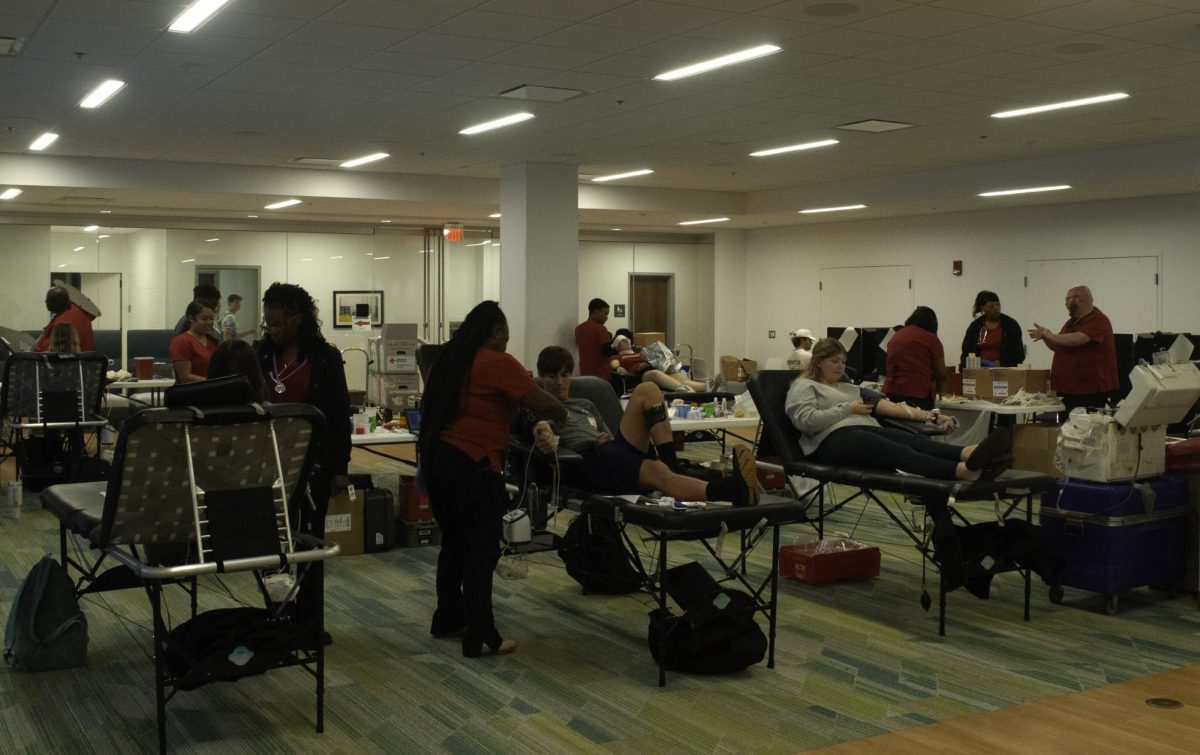Ethics Awareness Week, which is sponsored by the University System of Georgia, stretches from Nov. 4 to Nov. 10, with GCSU bringing a variety of guest speakers to promote awareness of ethical issues across many different fields of study.
The week concentrates on small-scale ethical issues. One example of these ethical issues highlighted throughout the week is how to create an ethical workplace and how that can evolve into a more ethical culture. However, Ethics Awareness Week also promotes recognition of broader ethical issues, with core principles of integrity, excellence, accountability and respect.
Rhonda Fowler, chief audit officer at GCSU, is one of the main executives organizing Ethics Awareness Week. Fowler’s experience allows her to create a meaningful schedule of events for students to engage in and learn from. But Fowler is looking forward, believing Ethics Awareness Week can be improved for future years and already considering where to improve next year.
“I think as a learning institution, it’s important to bring in a variety of viewpoints,” Fowler said. “I also think it’s equally as important to teach the students to think for themselves and make their own determinations, rather than just bringing in one viewpoint and saying, ‘This is what you need to think.’”
Kicking off Ethics Awareness Week on Monday, Nov. 4, was Nels S.D Peterson, the presiding state supreme court judge, who spoke with attendees about the ethics of compliance in the workplace.
On Tuesday, Nov. 5, and Wednesday, Nov. 6, students and faculty came together in Donahoo Lounge to donate blood to the American Red Cross. This helps to create a feeling of assisting the greater good for many donors and emphasizes the accountability principle that USG strives to create.
Additionally, GCSU brought guest speakers from all across the state to discuss the importance of ethics in their respective fields of study.
One event was a panel of guest speakers on Zoom, who discussed the importance of “Integrity Intelligence.”
Another guest speaker was Author Stephen Palmer, who created an engaging discourse about the ethics of journalism and how journalists may misconstrue readers by only publishing articles that support their political agendas. His Times Talk, titled “The ‘Conservative’ Case for Harris?” was met with mixed reviews.
Through his presentation, Palmer discussed how recognizing bias in the media is an essential skill for critically engaging with mainstream news. Bias can manifest in various ways, whether through the selection of sources, the framing of issues, the language used or even the omission of key information.
“I don’t want to pretend to speak specifically to GCSU because I don’t know the political climate here,” Palmer said. “But studies have shown that as high schoolers graduate and go to college, they do move closer to the political left. That might be because of college, or that might be because young people, by nature, just tend to be more liberal. I think generally speaking, as 18-year-olds become 19 and 20 in a college setting, they do tend to become more liberal.”
Some universities, including the University of Georgia, have certificates that students can earn to learn more about how to recognize bias in the media. Though GCSU lacks a whole program, the Mass Communication Department, which houses a journalism concentration, requires its students to take Media Literacy as the prerequisite course to continue into upper-level major courses.
Palmer further discussed how institutions can work to become less biased and expressed his opinions on whether universities should require classes on media literacy.
“I’m not a big fan of requirements or mandates,” Palmer said. “But I would really like to see students undertake that specific educational endeavor. I just don’t think it would take great purpose in mandating something.”
Scott Dillard, interim chair of the Department of Communication and professor of rhetoric, critiqued Palmer’s presentation.
“He went through ten things,” Dillard said. “Ten ways in which traditional media attempts to dissuade the public, and he said ‘traditional media’ or ‘liberal’ media tends to do these things. And my response to that was that you could just flip that and say the same thing of more conservative media.”
Additionally, Dillard considered the purpose of a Times Talk and how it is meant to create an environment of discussion and support for differing opinions. Dillard thinks Palmer missed the mark on properly aligning his discussion with the typical structure of a Times Talk.
“My problem was that I think he misunderstood the assignment,” Dillard said. “I don’t think he did enough work into making Times Talk do what it was meant to do — which is to have a good discussion. Whereas I think he was there to lecture on a particular point of view, which he is welcome to have in [a lecture-based] environment. However, seeing as he was leading it, he didn’t seem like he wanted a discussion. He seemed like he wanted to prove a point.”
Ethics Awareness Week is a hallmark of the USG’s commitment to shared values and expectations of the ethical culture of Georgia’s academic institutions. This week helps to highlight the core principles of not just GCSU but also the values of the entirety of Georgia’s public universities.


